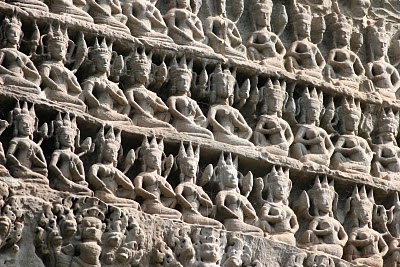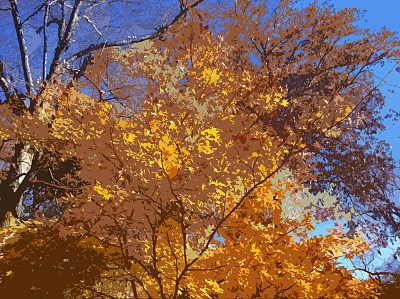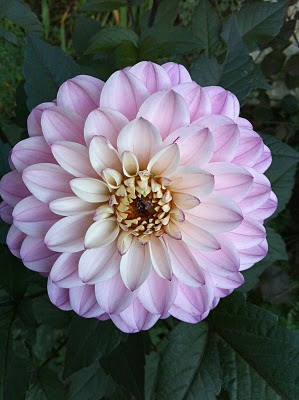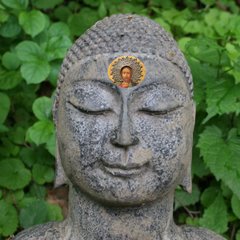 One
of the things that I've noticed lately, as I study the way I am and how
my reactions take place, is that I prepare what I am about to say
before it is said. That is to say, I see myself forming the words, and
then out they come. I always have a question about this; is there any
possibility of true spontaneity, or are we always pre-formulating the
way we manifest?
One
of the things that I've noticed lately, as I study the way I am and how
my reactions take place, is that I prepare what I am about to say
before it is said. That is to say, I see myself forming the words, and
then out they come. I always have a question about this; is there any
possibility of true spontaneity, or are we always pre-formulating the
way we manifest?Thursday, December 16, 2010
transaction and gravity
 One
of the things that I've noticed lately, as I study the way I am and how
my reactions take place, is that I prepare what I am about to say
before it is said. That is to say, I see myself forming the words, and
then out they come. I always have a question about this; is there any
possibility of true spontaneity, or are we always pre-formulating the
way we manifest?
One
of the things that I've noticed lately, as I study the way I am and how
my reactions take place, is that I prepare what I am about to say
before it is said. That is to say, I see myself forming the words, and
then out they come. I always have a question about this; is there any
possibility of true spontaneity, or are we always pre-formulating the
way we manifest?Monday, December 13, 2010
Worship
 One of the generalized understandings in all the major religions is a requirement of worship.
One of the generalized understandings in all the major religions is a requirement of worship. Monday, December 6, 2010
“There is no form”
 Imagine a new Work.
Imagine a new Work. Wednesday, December 1, 2010
The unformed word
 The
value and meaning of words is forever in question. They grow out of us
as spontaneously as leaves, emerging, collecting energy, feeding
something, and then falling behind us. Fertilizer, perhaps, for future
ideas and future generations.
The
value and meaning of words is forever in question. They grow out of us
as spontaneously as leaves, emerging, collecting energy, feeding
something, and then falling behind us. Fertilizer, perhaps, for future
ideas and future generations.Monday, November 29, 2010
Conscious Altruism
"And the fifth: the striving always to assist the most rapid
perfecting of other beings, both those similar to oneself and those of
other forms, up to the degree of the sacred 'Martfotai,' that is, up to
the degree of self-individuality.
Wednesday, November 24, 2010
within the living of it
 Today
marks the fourth anniversary of this blog. In keeping with my tradition
from earlier years, I'll be changing the sign off I end every essay
with.
Today
marks the fourth anniversary of this blog. In keeping with my tradition
from earlier years, I'll be changing the sign off I end every essay
with.Thursday, November 18, 2010
Machines and universes
 Neal
and I bought this orchid as a seedling (well, technically, a
cloneling--hybrid orchids are almost all grown from clones, not seeds)
on our honeymoon in 2002. It just bloomed for the first time ever.
Neal
and I bought this orchid as a seedling (well, technically, a
cloneling--hybrid orchids are almost all grown from clones, not seeds)
on our honeymoon in 2002. It just bloomed for the first time ever.Monday, November 15, 2010
Expression
Monday, November 8, 2010
Creativity, part 2
It may seem peculiar to suggest that man has an obligation, or a responsibility, to be creative. No one, however, would dare argue that we don't have a proclivity for it; consciousness and creativty seem like very nearly indivisible forces. Art critic Ellen Dissanayake has argued (to great effect, in my own opinion) that creativity is at the very heart of what distinguishes man from other animals-- a trait hard-wired into the species.
I think we can safely label creativity as the most mysterious and extraordinary of forces readily apparent in man. It mirrors the mystery of life itself: material appears as if from nowhere, taking on shapes and forms no one could have foreseen. It's furthermore quite clearly connected with our emotional capacity: it not only appears, in most cases, to arise from emotional roots, it stimulates us emotionally in powerful ways, connecting it to the selfsame emotional forces which Gurdjieff always said were indispensable to the development of man's soul.
To be sure, the idea is hardly unqiue to Gurdjieff; that theme has surfaced countless times throughout history. The understanding, however, translates quite directly to the inner work we do. Inner work is, in the end, an intensely creative act, and remains so regardless of whether we mistakenly believe that we "do" the work that leads to inner development--an unfortunate dilemma originating in and exploited by the ego-- or acquire an unbrokered experience of the creative action of the divine, Mme. De Salzmann's "higher energy," within us.
The very act of opening, of allowing a higher energy to enter us, may superficially appear to be a destructive act--certainly, there is more than one work that speaks of the "dissolution" of the ego, as though something were being destroyed or lost--but it's actually a stepping aside to allow the mysterious generative forces which the human being is inherently endowed with to do their work: a work our ordinary psyche routinely interferes with.
Indeed, if there are destructive impulses in us, they are the property of the ordinary mind, the mind of this level. The higher, as it's referred to in this work, is endowed exclusively with a most unique and extraordinary positive creative power: one of the aspects of Mercy.
I've spent a lifetime in the creative arts, with mixed "results." In the process of living this act of what I would call perpetual discovery, I've had to endure countless encounters with my own egoism; at the same time, I've had to endure the objective embarassment of praise that comes my way for being "talented," even though I can honestly say I have never felt talented... only interested.
And what interests me is this way in which truly good work does not come from me.
It reminds me in a way of the big bang: every time it takes place, I feel all over again as though I am miraculously present at the creation of a new universe that did not exist before. Of course the anaolgy may be stretched a bit too thin... After all, a poem is hardly a whole universe... Yet there is a definite relationship between the two actions. They share, put in different and "more scientific" terms, a property of emergence, which is the driving force behind the evolution of complexity... and hence consciousness itself... in the universe.
The Deepest Heart
I wrote a piece for my last CD, "Elapsed Time Remaining," called "The Deepest Heart." The piece is what it is-- and it's certainly a bit atypical of my compositions. But the title points towards an inner space which receives, and understands, the act of creation differently.
The ultimate repository of creativity in man's inner being--the "deepest heart" of his obligatory creative pulse--lies not within the object that is materially seen, or the musical vibrations which arise in the air. Yet in reviewing and interpreting the "results" of art--be it an Aerosmith song, a Beethoven symphony, or a van Gogh painting, we often make the mistake of thinking that it is the material existence of the artistic piece which is significant.
I say mistake because the ultimate value of what is created--whether by nature or by man-- is never in the material creation itself, but always lies in the seeing of it.
It is this act of seeing, so often revisited as the core practice of inner work in "The Reality Of Being," wherein true creativity resides. It's true enough that there is an inherent reciprocity, but through an organic act of receiving more deeply--of allowing life to flow into the centers in a new way, so that we actually live in a less superficial manner--we are able to see that art lies in the seeing and the living, not the doing and the making. The doing and the making are merely paths leading us in the right direction. Ultimately, if we wish to participate in the most intimate form of creativity, we must do this through the receiving of impressions in a much deeper way.
And this is, indeed, exactly why the act of creativity is obligatory for man, why we crave it, and why it is so central to "saving the planet," as Mme. used to say. It is, in fact, what man evolved for, and lies very close indeed to the most essential purposes of his existence.
Sunday, November 7, 2010
Creativity
I'm on my way back home from China today.
It occurred to me that it's a rather sobering job to carry on this effort of presenting material- both personal, and of a broader scope-- in a contemporary voice representing a viewpoint which is, as best it can be, formally aligned with the Gurdjieff Foundation, and the lines of work established by individuals who knew Gurdjieff personally.
No one ever asked me to do this... and perhaps I'm a fool for trying. There are times when I hardly feel up to the task, and no matter what, I am certainly "standing on the shoulders of giants," as Newton put it.
Or at least trying to.
Nonetheless, the effort is what counts. We must all do our best to meet life as honestly as we can in the midst of our shortcomings, without pretending that they either negate our actions, or excuse us from taking any action.
Along these lines, today it occurred to me that man is under an esoteric obligation to engage in creative work.
One of Gurdjieff's "obligolnian strivings" is an ongoing effort to understand the laws of world creation and world maintenance. This striving cannot be undertaken passively or intellectually: the understanding that's called for here must absolutely be three-centered, since anything short of that isn't real understanding. It needs to be organic.
In order to understand in this way and at this level of Being, a specific kind of participation is required. Now, we all automatically and mechanically participate in these laws--in this no choice is offered (short of the absolute refusual of suicide, the danger of which was, readers may recall, why the notorious organ Kundabuffer was originally installed in man.)
However, a mechanical participation isn't enough. We are called on by our Creator to participate actively in the creation and maintenance of worlds- both inner and outer. That is, a call comes "from above"- from a mystery which we are born into, but have for the most part forgotten how to sense-- to participate consciously in the action and consequences of world creation and world maintenance.
This means that man is actually under a cosmological obligation to create. It's not for the glorification of ego, or of humanity (goals we are all too easily lured into believing in, by the largely secular forces of this level), but for the fundamental support of the universal process of evolution of consciousness.
In the arts, we see levels. There are more and less conscious elements. (Poetry, for example, is "more conscious" than prose: it is able to transmit what is inwardly formed at higher rates of vibration.) Make no mistake about it, creative endeavors are all, in one way or another, part of the effort by the universe to raise the level of vibration-- a subject Mme De Salzmann broaches multiple times in "The Reality of Being."
Man, as part of this general effort, is triply obliged to make efforts to create, as a consequence of this obligolnian striving: first, to help himself understand his own inner world (the aim of all artists); second, to help men understand each other (the aim, collectively, of "the arts"); and third, to help men understand God--the aim of mankind.
Even atheists can comfortably sign on to the first and second premise, but perhaps that's beside the point. What we are investigating here is the fundamental obligation and responsibility of men and women to engage in creative activity.
I recall Betty Brown telling me, years ago, that Mme used to say that man's creative activity would be what "saved the planet." And indeed, we all taste something of the essential in the creative act: an undercurrent that reminds us that this is-- after all the uproar-- what life is for.
What we may not see is how vital this effort is to the nurture of not only our own Being, but also that of mankind, and the planet itself.
I hope, insh'Allah, to write a further entry on questions of creative effort later in the week. But this is enough for now.
May the living light of Christ discover us.
Sunday, October 31, 2010
payment, suffering, and offering
Wednesday, October 27, 2010
A living work
I keep finding myself in the midst of life... And, invariably, daily, within the question of life itself... a compelling question, one that arises not from any casual thought, but from the depths of the organism itself.
Work in life, I see, must be a living work. It can't just remain a work of the intellect, a theoretical work. That may be where it began for me, many years ago, but it has since- like water percolating downwards into the darkest, most intimate parts of the earth- penetrated into the very bones, the marrow, of my life.
This is how it needs to be. My work needs to permeate me, to saturate me, or my wish has no power.
If I misunderstand this need... If I keep searching from within intellect... My wish is a lost wish. I'm puzzled by where it is, why it doesn't motivate me more... Why, as Dr. Welch used to say, I don't work.
So many of us reach middle age without a clear understanding of this point. It's at this point, however, that the shock of realization can become most powerful, and create the most fertile possibilities. That moment when I see that I am turly growing older, that this process ends in death (yes, finally I begin to irrevocably admit that to myself, rather than equivocating it) and that the "meaning" I try to extract from the achievement of outward tasks pales in comparison to that question.
I am headed towards an appointment with death. How am I conducting myself?
So it's here, at this age, where I face the real terror of the situation, that I discover the greatest possibility. It's possible for the elements inside my body to enter a new relationship, where the intellectual urgency of the situation...fused with the beginning of a meaningful emotional understanding... meets with a newly energized, active physical force that actually has the power to sustain an effort in life, instead of just thinking about it.
We talk a lot about that force, and we read about it. Yet we have so little understanding of it. In some ways, the discussions about it and the intellectaul framing of it- the form we assign it- are a hindrance. It's only by the living of it, the sensation of it, that I can investigate it, and the moment I deconstruct that to attempt an understanding, I have already misunderstood.
In a way, then, it is only in the silent contemplation, the silent appreciation, of this moment that I can approach the question. (The only medium I have discovered with the potential to leave enough open air in the question to allow it to breathe naturally is poetry.) These discussions of life we engage in become wearying... They're so repetitive,, aren't they? We must find a way to be more than just parrots... and yet the parrot in us so dearly loves itself.
We have both an obligation and a responsibility to engage, and to exchange. It's not enough to just sit here absorbing the vibrations- I'm called upon to be active enough to stand in the middle, between the active and the contemplative elements of my life, and to supervise a dialog between them.
Ah, that sounds good... Yet "I" don't "do" this. If it happens, when it happens, it is the living work itself that does it... And perhaps we might say that this living work has no "I", at least not as it is understood now. The living work is already connected to- arises from- transmits- a force that transcends this little "I" that loves itself so much.
So to be touched by this potential for a living work already requires a surrender. I don't well understand the nature of that surrender... I can taste it with the soul much better than I can touch any part of it with the mind.
And it's that intimate contact alone which can lead me deeper into this question of what I am, and why I am here.
May the living light of Christ discover us.
Thursday, October 21, 2010
No prepared statements
 The
idea of living in the moment is often forwarded in spiritual works–the
Gurdjieff work as much as Buddhism, for example. But how often do we
actually approach anything that way?
The
idea of living in the moment is often forwarded in spiritual works–the
Gurdjieff work as much as Buddhism, for example. But how often do we
actually approach anything that way?Wednesday, October 20, 2010
Reality check
 I dedicate this post to my old neighbor, Susan Brooks, who died of breast cancer yesterday.
I dedicate this post to my old neighbor, Susan Brooks, who died of breast cancer yesterday. Tuesday, October 19, 2010
Inquiry and energy
 If I had to summarize the entire Gurdjieff work, what its essential nature is, in a single word, that word would be “inquiry.”
If I had to summarize the entire Gurdjieff work, what its essential nature is, in a single word, that word would be “inquiry.”






